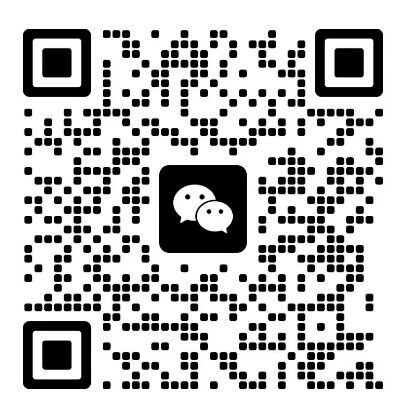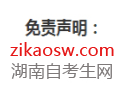Reading-to-writing approach does have sound advantages. First of all, we don’t need to spend a lot of time to do writing exercises specifically because we are actually practicing writings while doing our regular reading. That is to say, reading-to-writing approach does not interfere much about our study as a whole. Secondly, we will easily find out that our self-confidence of writing is developed. “You will see that as you write more and more, your confidence will increase (Judith Oster, 1984: ⅹⅴ)”. Gradually, we will feel that we are confident not only in our English skills but also in expressing our opinions if we apply reading-to-writing approach persistently. Thirdly, we can enlarge our vocabulary, cultivate our sense of sentence structures and composition structures, enrich our writing materials and promote our ability in using words and sentences. Fourthly, we can get a deeper understanding of the reading materials and broaden our mind at the same time. The last but not least, what we write is based on our understanding and experiences of the reading materials, which would arouse our interest in English writing and motivate us to write.
To sum up, reading-to-writing approach can effectively improve our EFL writing ability and ensure us to write easily whenever we want. Hence, there is no doubt that reading-to-writing approach outweighs the product approach and process approach and it is really a suitable and effective one to improving our EFL writing ability.
6 The application of reading-to-writing approach
Most of the studies about reading-to-writing approach advocate applying this approach in classroom English teaching. Commonly, they suggest the teachers to offer the students a piece of reading material and require the students to read the whole material. Then, the students are assigned to write a composition during the class based on their understanding of the reading materials. My study is quite different from theirs. In the following part, I would like to show how to choose good English reading materials and how to apply this approach in our EFL writing practice.
6.1 The selection of good English reading materials
When it comes to reading materials, “great care should be taken regarding materials selection (王蔷,2000: 116)”.The selection of reading materials will have a direct effect on our reading efficiency. So it’s necessary for us to know how to select good English reading materials. Here are some principles for selecting good English reading materials.
First, the English reading materials should be accessible. That is to say, we should select the English reading materials according to our own English competence. It is suggested that we are able to understand eighty-percent of the reading materials without any kinds of help. If the reading materials are too difficult, we will get frustration in understanding it and give up reading easily. While the reading materials are too easy, we would get little from it.
Second, the English reading materials should be well-constructed and well-organized. Those reading materials are always written carefully and serve as models of writing. Through the imitation of those writing models, we are actually writing based on the masters’ shoulders and our EFL writing ability would be improved quickly and efficiently.
Third, the English reading materials should be healthy, practical and intelligent. In this way, we will not only get a lot of useful information from the reading materials but also be interested in reading. Being interested in the reading materials, we must have our own interpretation of the materials and we will be easily motivated to write. Besides, this kind of reading materials would exert a gradual and imperceptible influence on our mind and nurture us to be a knowledgeable and noble person.
Fourth, the length of the reading materials should be about 300 words. A fairly long passage is beyond our English reading competence and patience but worse of all a time-consuming job. Reading materials about 300 words not only match the length of the short essays in reading comprehension in English tests but also agree with our reading habit and competence. If the reading materials are too short, it’s not useful for us to learn about the structures and organization of the texts.
Here I would like to recommend some good materials. The essays in our textbooks, the passages in our examinations, the short passages in newspapers and magazines, the short essays written by famous writers and the articles in New Concept English (2) are all fine materials for us to practice reading-to-writing approach. It’s highly recommend that we should share and exchange good reading materials with our peers.
Through an exposure to a great amount of good English reading materials, we will enlarge the amount of vocabulary, learn to use and choose words, enrich our writing materials, internalize a set of English grammars, cultivate our sense of sentence structures and composition structures, obtain writing skills, and be used to thinking in English. In this way, the good reading materials serve as the basis of reading-to-writing approach and will ensure us to apply reading-to-writing approach effectively.
6.2 The principles of applying reading-to-writing approach
6.2.1 Paying equal attention to reading and writing
The study indicates that there is a strong relationship between reading and writing. However, reading is a receptive activity while writing is a productive activity. One who is good at reading does not mean that he/she can do a good job in writing. A case in point is that most of us are good at reading but often afraid of and poor in EFL writing. “Improvement in reading does not necessary lead to the development of writing, and vice versa. (相廷礼,2007)”. Besides, it’s commonly known that reading and writing share almost the same scores in examinations, especially in NMET (National Matriculation English Test). Therefore, we should pay equal attention to both reading and writing. That means we need to rearrange our previous time spending on reading and writing. Supposed that the time for English reading and writing is fixed, we have to distribute more time on EFL writing practice while less time on reading. To keep a balance on reading and writing will maximize the efficiency of EFL writing.
6.2.2 Paying equal attention to intensive reading and extensive reading
Wei Yanfeng (韦岩峰,2004) thinks that the combination of intensive reading and extensive reading is the key to improve reading ability. However, we don’t input sufficient intensive reading as well as extensive reading. We may receive some intensive reading in classroom learning because the teachers incline to analyze the whole text thoroughly, such as the grammar, words, sentences, etc.. That’s not enough because we don’t read intensively ourselves but the teachers instruct us. Without sufficient intensive reading, it’s hard or impossible for us to internalize the usage of words, the arrangement of sentences, the development of paragraphs and the structures of the text.
According to our teaching practice in Bobai Middle School, it is commonly found that the students read few English reading materials except the textbooks. That means we don’t read extensively in our daily English learning. Without inputting enough English reading materials into our “database”, we will find that we are wordless in EFL writing. This accounts for the reason that we usually feel mind-emptiness when confronting EFL writing. Reading extensively would effectively enrich our writing materials and thus improve our EFL writing ability.
In sum, read intensively, we can make fully use of the reading materials we emerged in; read extensively, we can get abundant materials for our EFL writing. We are highly recommended to read a lot of materials and select some of the materials to do intensive reading. In this way, with sound writing skills and rich writing materials, we will find that English writing is no more than a piece of cake to us.
6.3 Ways of adopting reading-to-writing approach
6.3.1 Pre-writing reading
In this stage, which serves as the most important step in reading-to-writing approach, we are expected to do a lot of work for the preparation of EFL writing and we should do so regularly and frequently. At first, we need to read through the whole reading materials as quickly as we can and grasp the general ideas of the reading materials. Next, we should read the reading materials slowly. While reading, we have to analyze the structure, organization and development of the text. Reading in this way can help us be aware of how the text is developed and organized. Furthermore, we need to read the whole reading materials carefully. In this step, we are highly supposed to analyze the usage of the words, guess the unknown words, look up some of the important and unknown words in dictionary and note down the useful words, phrases, expressions, nice sentences as well as good ideas and examples on our notebooks. It’s important and necessary for us to regularly reread or recite the information we have noted down. Then we should find out the topic sentences of each paragraph or summarize each paragraph’s main idea. Finally, we have to write down our own opinions or comments about the reading materials because we must have our own understanding about it. Here it does not mean that we need to do so as we come across every piece of reading materials. We can select two or three passages to do such critical reading every week.
Here are some tips in using the notebooks. We can use one notebook specifically for noting down the useful words,
TEL:蒋老师17773102705
扫一扫下方二维码关注湖南自考生网微信公众号、客服咨询号,即时获取湖南自考、成考、网教最新考试资讯。

关注公众号免费拿资料

微信扫一扫咨询

微信扫一扫咨询

1、鉴于各方面资讯时常调整与变化,本网所提供的信息仅供参考,实际以考试院通知文件为准。
2、本网部分内容来源于网络,如有内容、版权等问题请与本网联系,我们将会及时处理。联系方式 :QQ(393848300)
3、如转载湖南自考生网声明为“原创”的内容,请注明出处及网址链接,违者必究!